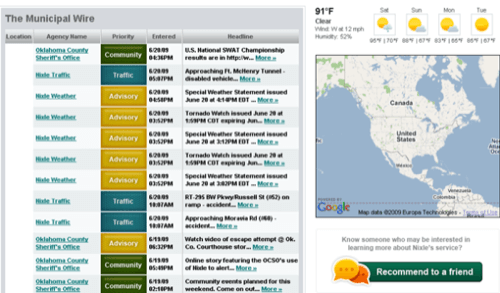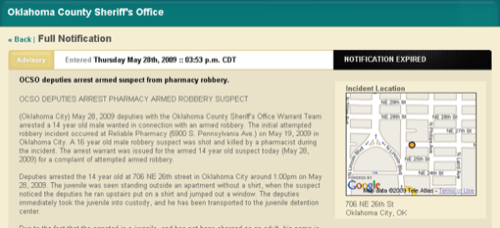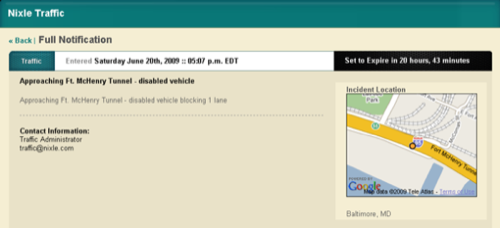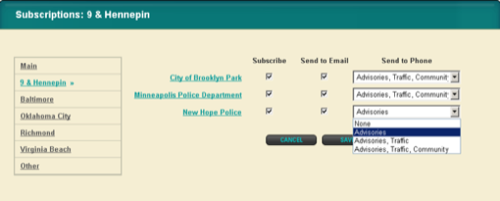A new SMS and email notification service is helping local government agencies reach citizens when and where it will do the most good: As soon as possible, and wherever that citizen happens to be.

Depending on whether agencies in a selected location are participating (currently, nearly 1,000 agencies have signed on since the company’s launch in March), users can sign up at the Nixle website to subscribe to emails, web alerts, and text messages about community issues from tornado watches and traffic accidents to local robberies and fugitives on the loose. Nixle moreover provides a painless way for local agencies to transition into modern times and notify community members of critical details in ways that will have an immediate impact.
“Any tool that helps us improve public safety is worth using,” Oklahoma County Sheriff John Whetsel is quoted as saying in a Nixle press release. “People rarely go anywhere these days without access to a cell phone or the Internet. With Nixle, we’re always able to relay important information, thereby improving the community’s quality of life.”
Users can add as many locations as they like to receive alerts for different areas; for example, I know of several female relatives who would be more than happy to know of police alerts in the various towns I travel to and worry/overreact accordingly.



Users can also choose which kinds of alerts to receive and what on medium they prefer to receive them.

Nixle claims to be the first authenticated, secure service for connecting municipal agencies and community organizations to residents in real time. It uses the Google Maps API to determine and display location and proximity. The company is privately funded and its services are free to all governments, government agencies and organizations, nongovernmental organizations, and end users.
As geographic location and proximity become more and more relevant to users and the wealth of information about locations increases, applications such as Nixle seem like the next logical step in law enforcement and public safety. It’s great that these alerts are available in real time; it would also be great to see a Brightkite-esque “check-in” process made available for users. For example, if I’m at a friend’s house and a store down the street is robbed, it would be great to have the information and know to stay safely inside for a little while.
Then again, real-time availability of information is just as useful as location-based information, particularly when issues of public safety are involved.
What do our readers think? Is a real-time, geo-specific alert system the future of law enforcement? Or is it creepy, Big Brother, Minority Report territory?

















